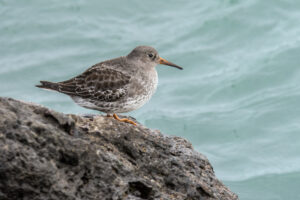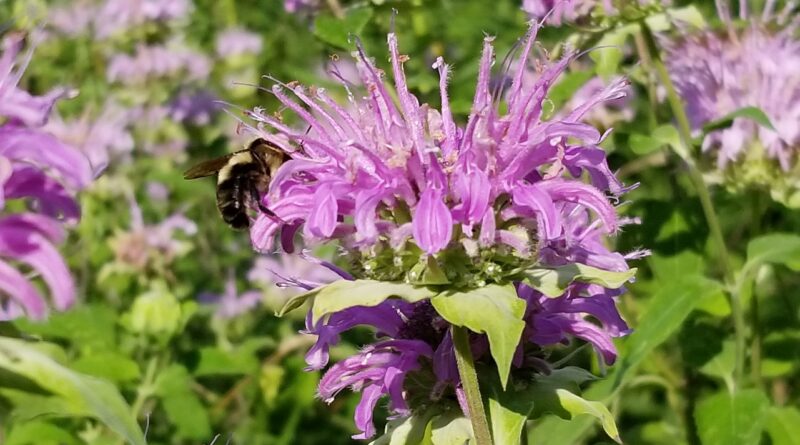Herbaceous Perennial Plants with Allan Armitage
Podcast: Play in new window | Download (Duration: 1:55:34 — 54.0MB)
Subscribe: Apple Podcasts | Spotify | Android | iHeartRadio | Podchaser | Email | TuneIn | RSS | More
(November 15, 2020) We last spoke to Dr. Allan Armitage on Easter Sunday of this year. At that time, he reported that his book, Herbaceous Perennial Plants, 4th Edition, was due to be released any day. It had taken longer than expected, but the wait was nearly over. Meanwhile, in response to widening COVID-19 pandemic, he had just written a piece called There is no Sugar Coating This. Here’s part of it.
Skip to a specific segment in this podcast
3:52 Dr. Allan Armitage
59:38 Bob Dolgan of “Monty and Rose,” Stephan Beilke from Audubon Great Lakes
1:31:55 Meteorologist Rick DiMaio
Gardening is Part of the Solution
However, we need not cower; we need not live with dread. Let’s all of us spread the word that gardening is one of the few exercises people can enjoy without fear. Spreading the word by actions and deeds may even soften the reality on the ground. Gardening provides mental and physical exercise and without doubt provides therapy. Oh my, how we all need some of that!
Whether in response to the plea of Dr. Armitage, or because of other forces, gardening is one of the activities that has actually thrived during these dark months. Two weeks ago on our show, Chris Beytes from GrowerTalks reported that some industry analysts estimate that the pandemic has “created” from 16 to 20 million new gardeners.
And, guess what? Dr. Armitage’s book was published, too. It’s the perfect gift for the gardener in your life…even if that gardener is you. Seriously. Don’t short-change yourself.
Briefly, Armitage is a world-renowned writer, speaker and researcher who was raised in Canada and has continued to move south, stopping at Michigan State University to get a Ph.D., then continuing on to the University of Georgia in Athens, where he now makes his home. In fact, he and his wife Susan voted for the first time on November 3, after having been “green carders” for many years. We will ask him about that this morning.
In addition to Herbaceous Perennial Plants, his books include Armitage’s Garden Perennials, Armitage’s Native Plants for North American Gardens, and Of Naked Ladies and Forget-Me-Nots. He has written a monthly column for the national greenhouse publication, Greenhouse Grower, for more than 30 years. He’s also author of hundreds of articles and papers for all kinds of publications.
Herbaceous Perennial Plants clocks in at more than a thousand pages. How many of you have written a book of that length? Of course, he’s had three earlier editions to rely on, but in the words of President-elect Joe Biden, “C’mon!” Dr. Armitage is a man fascinated by words, whether English or Latin. In fact, as he walks you through the a thousand-plus pages of perennials, he provides pronunciation guides to the Latin names. Who does that?
He’s on the side of science and on the side of the common gardener at the same time. Here’s an example from his entry about a very popular plant, commonly known as Aster.
It is no secret that the Aster genus taxonomically has been changed significantly. Based on characteristics such as chomosome number, inflorescence shape, the presence of rhizomes, an characteristic basal leaves, the genus ws split into new an gruesomely unspsellable genera. This is mainly the case of the American asters (New England, Carolina aster, etc.), all of which have been reclassified, although there is still iscussion about Aster novi-belgii.
The main genus to which the asters have been transferred is Symphyotrichum (sim-fee-o’-trick-um), but other equally tongue-twisting genera have also been constructed. Most of the name changes took place in 1995, an to this day have been coolly embraced by botanists and mostly ignored by gardeners (perhaps because we can’t pronounce them).
Such is the challenge of being a scientist by trade and a populist at heart. But he navigates those turbulent waters with the characteristic Allan Armitage wit. Perhaps my favorite part of the book is when he writes this.
I suspect there are still people who dismiss global warming as a hoax. If they are that stupid, they surely won’t be reading this book. It is real an it has resulted in global weather changes, an additional challenges for the gardener. Adapting to changes in the hardiness maps is the least of our worries. More severe droughts, more sever rain patterns, winds, an fires all add not only to major transformations to our planet but also major influences in how we garden.
Let’s be clear. You’re not going to read this book cover to cover. Rather, it’s an invaluable reference that will serve you well, over and over again, each and every time you need specific information about a specific perennial plant. It will occupy a cherished spot on your bookshelf for years to come. It’s an honor to have Dr. Armitage back on our program today.
BTW, you can get your copy of the book mailed to you with free postage by using the code MIKE when you order the book here.
The future of Midwest birds
I received an email from friend of the show Bob Dolgan this week. He’s the guy who created the lovely and award-winning film Monty and Rose, about the pair of piping plovers that nested on Montrose Beach in 2019 and captured the hearts of Chicagoans. It was about the recent election and was titled What a Biden Administration may mean for birds.
 While I admire Dolgan’s efforts to call attention to the plight of birds, it’s sad that we have to rely on the election of a Democrat to the White House to even consider slowing the loss of our bird populations. I receive his mailing just before Audubon sent me a similar story: What Biden’s Presidential Win Means for Birds and the Environment. WTF?
While I admire Dolgan’s efforts to call attention to the plight of birds, it’s sad that we have to rely on the election of a Democrat to the White House to even consider slowing the loss of our bird populations. I receive his mailing just before Audubon sent me a similar story: What Biden’s Presidential Win Means for Birds and the Environment. WTF?
Dolgan just launched This Week in Birding, on the one-year anniversary of Piping Plover Day in Chicago. And he’s currently working on the sequel to Monty and Rose. He’s on the show today. And he is joined by Stephanie Beilke, Conservation Science Manager for Audubon Great Lakes. Among the things they’re working on:
- The National Audubon Society’s Survival by Degrees: 389 Birds Species on the Brink has found that two-thirds of North American birds are at risk from climate change.
- Which Great Lakes Wetlands Do Birds Need Most? Audubon Scientists Find Out
- Audubon Great Lakes is hosting a webinar to kick-off of a major restoration project in Southeast Chicago that will improve hundreds of acres of wetlands, benefiting wildlife and people in the Calumet region on November 19, 2020 at 6 pm. During the discussion, you will learn about the latest major restoration project in the Calumet: the hydrologic reconnection of Powderhorn Lake and Wolf Lake! Audubon Great Lakes and the Forest Preserves of Cook County are restoring hemi-marsh, ideal habitat for marshbirds and fish, and creating fish passage between these two waterbodies that have been separated for nearly 100 years. Learn more about these efforts and see how you can get involved. RSVP for the webinar here.

